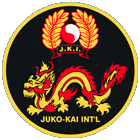RANK AND GRADE

The kyu (ranks below black belt) and dan (black belt grades) system was initiated by Jigoro Kano (1860-1938), the founder of Kodokan Judo. Dr. Kano, seeing the need to differentiate between teachers and students, began using a black sash (the type used with a Japanese kimono) to be worn by his advanced pupils.
It is believed that around 1907 the sash was replaced by the Kuro Obi (black belt). As time went on, a brown belt was instituted that further classified pupils. The classifications were Shoshinsha (beginner), Chukyusha (mid-level/intermediate), Jokyusha (upper-level/advanced) and Yudansha (black belt/advanced, with ascending grades).
Eventually belt colors were used to distinguish the different levels of achievement. The kyu/dan system was carried over to Karate-do after its introduction to mainland Japan by Gigen Funakoshi (1868-1957). Generally speaking, the ranks from 1st to 5th dan are tested for, while the ranks from 6th to 10th dan are earned which are bestowed by the hombu (headquarters) as a result of one’s continued dedication, loyalty, activity, time-in-grade, and overall achievements.
It is believed that around 1907 the sash was replaced by the Kuro Obi (black belt). As time went on, a brown belt was instituted that further classified pupils. The classifications were Shoshinsha (beginner), Chukyusha (mid-level/intermediate), Jokyusha (upper-level/advanced) and Yudansha (black belt/advanced, with ascending grades).
Eventually belt colors were used to distinguish the different levels of achievement. The kyu/dan system was carried over to Karate-do after its introduction to mainland Japan by Gigen Funakoshi (1868-1957). Generally speaking, the ranks from 1st to 5th dan are tested for, while the ranks from 6th to 10th dan are earned which are bestowed by the hombu (headquarters) as a result of one’s continued dedication, loyalty, activity, time-in-grade, and overall achievements.
